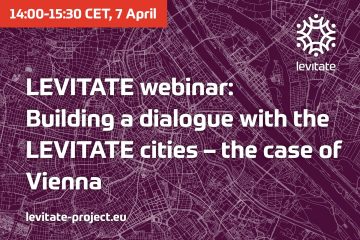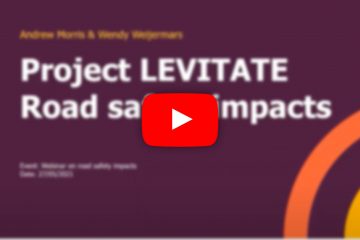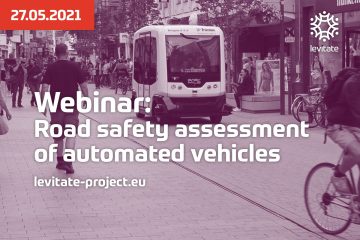From a cities’ perspective the advent of CCAM is not a strategic goal in itself. Rather, CCAM may be welcome if it is able to contribute to the city’s sustainability and liveability goals. There are impact areas where an increasing market penetration of automated vehicles may enter into conflict with the strategic goals of a city, particularly in the absence of regulation. How to define feasible paths of interventions, starting from a set of quantified goals, is addressed in the backcasting methodology of LEVITATE.
This webinar will enable you to learn about the principles of backcasting, how a dialogue with city authorities led to valuable qualitative inputs for our research, and how the final results of our impact assessment relate to the backcasting approach. As an example, the results for the city of Vienna will be discussed, including a detailed case study based on the backcasting city dialogue.
- Brief introduction to LEVITATE | Andrew Morris, Loughborough University
- An overview of the backcasting approach and its application to the city of Vienna | Martin Zach, AIT
- Combining methods and models to obtain quantitative results for impacts | Martin Zach, AIT
- A user-friendly tool for forecasting impacts and backcasting – the LEVITATE Policy Support Tool | Apostolos Ziakopoulos, NTUA
- Next steps for the Vienna investigation | Gerald Richter and Johannes Müller, AIT
Registration
LEVITATE webinar: Building a dialogue with the LEVITATE cities – the case of Vienna
Date & time: 7 April 2022 – 14.00-15.30 CET
Registration >>




